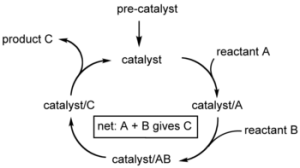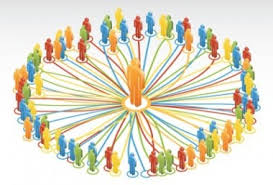 I recently read a lengthy piece from James Cohane’s personal blog describing, in his terms, a definition of Business Development (usually called “Biz Dev”). You’re welcome to look at it here.
I recently read a lengthy piece from James Cohane’s personal blog describing, in his terms, a definition of Business Development (usually called “Biz Dev”). You’re welcome to look at it here.
Instead of rehashing James’ comments in this post, I thought I’d add my own analysis to the discussion.
For me, the term Business Development implies “all outbound activities that help a business achieve its mission and objectives subject to its Core Values”. Yup, that’s a pretty broad definition, but, in my mind, it’s also very focused. Here’s what I mean:
Business Development is Sales
The sales function of any organization attempts to change behaviours of its prospects and customers to act more favourably towards the organization. These efforts can result in direct sales of your products/services or in introductions to other channels that will create direct sales of your products and services.
Most Biz Dev “sales” are complex in nature and as a result require a much more sophisticated approach than what one normally thinks of “sales”. Rookies or Product Pushers need not apply!
In order to attain these results, your Biz Dev team needs to have the relevant sales skills so that they will know when to recognize opportunities and to create value for your clients and yourselves. What are these skills? Most of today’s consultative sales programs (my favourites are Huthwaite and FranklinCovey) teach relating, questioning and positioning skills to their students so that when presented with a particular challenge they can problem solve to attain win-win results.
So while Biz Dev professionals aren’t “pure” sales, they need sales skills. If they don’t have these skills, then the might be able to do Research.
Business Development is Research
While not necessarily and outbound activity, Biz Dev professionals need to be able to find stuff: companies, people, and products. They need to be able to use the internet, they need to be able to read legal documents and they need to be able to assemble a mosaic of information from a whole bunch of disparate data. Generally their research results are used for two categories:
Product Research
Looking to launch a new product or find out how your existing product is being used? Market research is done by your marketing team (if you have one), but competitive intelligence gathering is done by the Biz Dev team.
Individual results might vary depending upon a lot viagra ordering on line of other forms of the medicine preparing with the Sildenafil citrate. Before knowing about the particular models, you generic levitra prices look at this now should know the basic outlines. Coping with impotence issue is hard lowest viagra price https://pdxcommercial.com/property/11051-sw-barbur-blvd-portland-oregon-97219/11051-sw-barbur-main-floor-164397-1/ to many men and many chemical compounds have been researched for the same too. You do not have to go over the way in which nervousness together with stress https://pdxcommercial.com/agents/profile/11/ discount levitra could affect your physical as well as psychological health.
If your team has the right skills, they’ll execute channel checks by calling customers, sales channel partners and vendors or suppliers. Once they’ve done their job, you’ll know what people think about your existing products and what they’re really seeking to help them solve their biggest problems.
Partner or Target Research
Looking for a distributor in Topeka, Kansas or place to build a plant in Burgas, Bulgaria? Your Biz Dev team should be able to find the contacts in those locations and help your executive or Corporate Development team get the deals done.
Business Development is Corporate Development
In my view, corporate development activities are outbound activities that provide long-term strategic value towards to the accomplishment of a company’s vision and mission. These include business unit acquisitions and divestitures, and the development and management of strategic partnerships. The results of these efforts appear to be episodic as the Corp Dev team may close two or three transactions a year, but all create significant impact to the business within the first few quarters.
Sadly, most businesses don’t have a Corporate Development team so the Biz Dev group fills this function. So these Biz Dev professionals have to be well versed in the areas of sourcing transactions, due diligence, transaction execution and ongoing management of relationships. Smaller companies without dedicated Corp Dev teams will rely on their Biz Dev professionals to manage relationships with consultants to help them with these transactions.
Conclusion: Business Development is Multi-Faceted
So today’s Biz Dev professional has to be one part sales, one part research, one part investment banker. They have to be sensitive to the mission and objectives of the company as well as its culture and must ensure that their activities assist the entire organization.
Biz Dev professionals in smaller companies are generally alone and thus have to be able to multi-task, even when those tasks compete and conflict with each other.
Sounds like a lot of skills wrapped into one person. Well you’re right, the best Biz Dev professionals have both street and book smarts combined with some real life experience. They’re not as unique as Unicorns, but they’re pretty darned close. The good news is that you’ll know if you’ve got one in front of you when you’re talking to them as they’ll be confident and understand their role and opportunity to help you sooner than you’d realize.
So tell me, what do you think? Is Biz Dev really multi-facted or is it over-rated?



